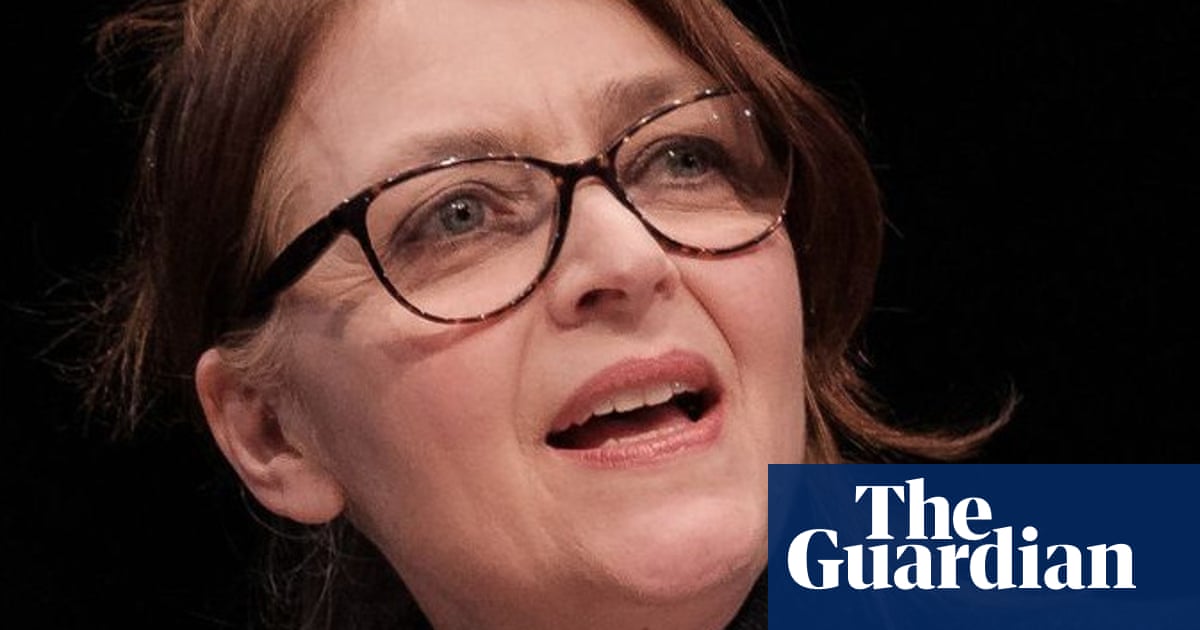From 2016 until her death, at the age of 64 after being diagnosed with cancer, Helena Bell was the artistic director ofKali Theatre, a company founded byRita WolfandRukhsana Ahmadin 1991 to encourage writing by south Asian women, and now based at the Albany theatre in Deptford, south London.
Helena believed that all theatre should be political, and she dedicated her life to unearthing stories from writers silenced by the mainstream, whether on account of their class, race, gender or sexuality. At Kali, in 2018, she created the Discovery programme, which sought to “discover” new south Asian women playwrights and produce their work. An open call-out saw writers submit their scripts, four of which were chosen for a script-in-hand performance.
Any writer unsuccessful in getting through would receive extensive written feedback from the dramaturgs and directors involved in the programme in order to help them develop their craft – an unusual courtesy in the theatre industry, but one that Helena insisted upon. She was also keen to counter the London-centric bias of British theatre, and launched Discovery programmes in Oldham, Leicester and Birmingham.
Helena was also instrumental in the publication of a collection of play excerpts for Kali’s 30th anniversary, 30 Monologues and Duologues for South Asian Actors, published by Bloomsbury in 2021.
I first met Helena in 2018 when she asked me to join the inaugural Discovery programmeas a dramaturgafter having seen my playAbi (a response to Abigail’s Party). During one rehearsal, I remarked that I felt bad about getting paid to sit in a room and have such engaging conversations. In many rehearsal rooms, the director is the ruler, but Helena flattened hierarchies and established a space where everyone’s voice – regardless of rank – was welcomed.
She had a knack for incubating new talent and provided a warm place for playwrights to thrive. She was known for her laugh, which she would launch into the room and loop others into. It was contagious.
Helena was born in Bristol to Jean Bell, who soon after Helena’s birth married Mervyn Uren. Helena went to Ashton Park school in the south of the city and, after graduating from Warwick University in 1982 with a degree in English literature, began training to be a teacher inBrighton. There she was diverted on to her theatrical journey, in 1988 co-founding Alarmist Theatre with Stephen Plaice and continuing as co-artistic director of the company until 1998.
In 1990 Helena directed Stephen’s adaptation of Vladimir Mayakovsky’s play The Bedbug, depicting a cryogenically frozen Russian hipster thawed 50 years later into a fictitious European superstate.
After its initial run at the Pavilion theatre, Brighton, and the Brighton and Edinburgh festivals, it was one of the first productions to tour in glasnost Russia. Feeding the cast and crew in Moscow was a feat, as food was scarce, so the company travelled to an international hotel where they could pay in dollars. At dinner Helena encountered an American who said he had fallen foul of the local mafia. Helena liked to recount how she came to the rescue and lent him her Russian fur hat by means of a disguise.
Back in Britain, she met and was mentored by the directorClare Venables, who provided support in a male-dominated industry.
In 1996 Helena directed Fossil Woman, by Louise Warren, about the extraordinary life of the Dorset fossil hunter Mary Anning (and coincidentally also one of Helena’s ancestors). A co-production between Alarmist and Shaker Productions at the Hawth theatre, Crawley, in West Sussex, then the Union Chapel, Islington, north London, subsequently transferred to the Lyric Hammersmith and was a Time Out Critic’s Choice.
Shortly after this, she was chosen to be one of six directors on the Arts Council directors’ bursary, a programme designed to train the next generation of British theatre makers. Through this she formed close creative partnerships with the directors Rosamunde Hutt and Pat Trueman.
Helena once remarked that she loved to curate not only pieces of work, but people. She put artists in touch with each other, which led to lifelong friendships. She met her own partner, the writer Grant Watson, in 1997. Helena went on to direct Grant’s playThe Lamellar Project, an epic snapshot of a near future where food systems have collapsed and two scientists clash over how to fix it, at the Arcola theatre in east London for the theatre and film company Pursued By a Bear, where Helena worked for a decade until 2016.
Although adopted as a baby by Mervyn, Helena grew up with the knowledge that she was of mixed heritage; her father had been a Punjabi Sikh student with whom her mother had had a brief relationship. Helena subsequently made a research trip to India and Pakistan for Ahmad’s play The Gatekeeper’s Wife, which was produced by AlarmistTheatre.
There she began the process of integrating the two continents from which she hailed. The insights gained from her trip to the subcontinent would inform her work and eventually culminate in her taking up the role of artistic director at Kali Theatre.
Helena is survived by Grant and their son, Jake, and by her younger brothers, Geoff and Robert.
Helena Bell, theatre director, born 31 January 1961; died 31 January 2025
